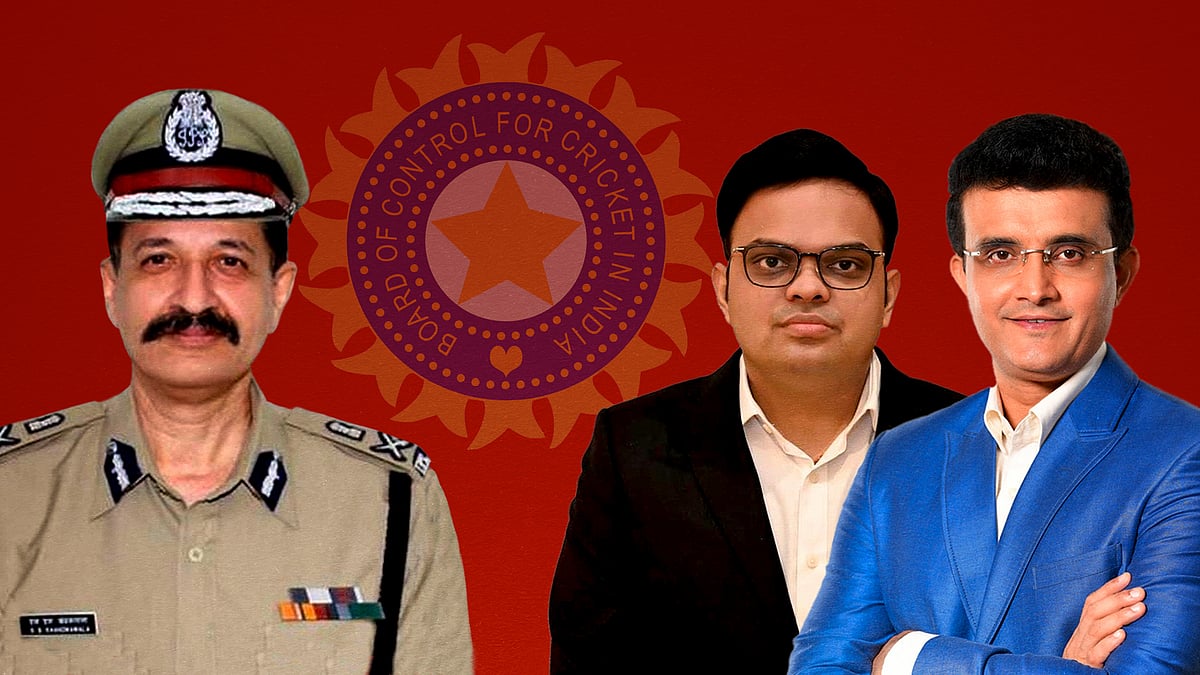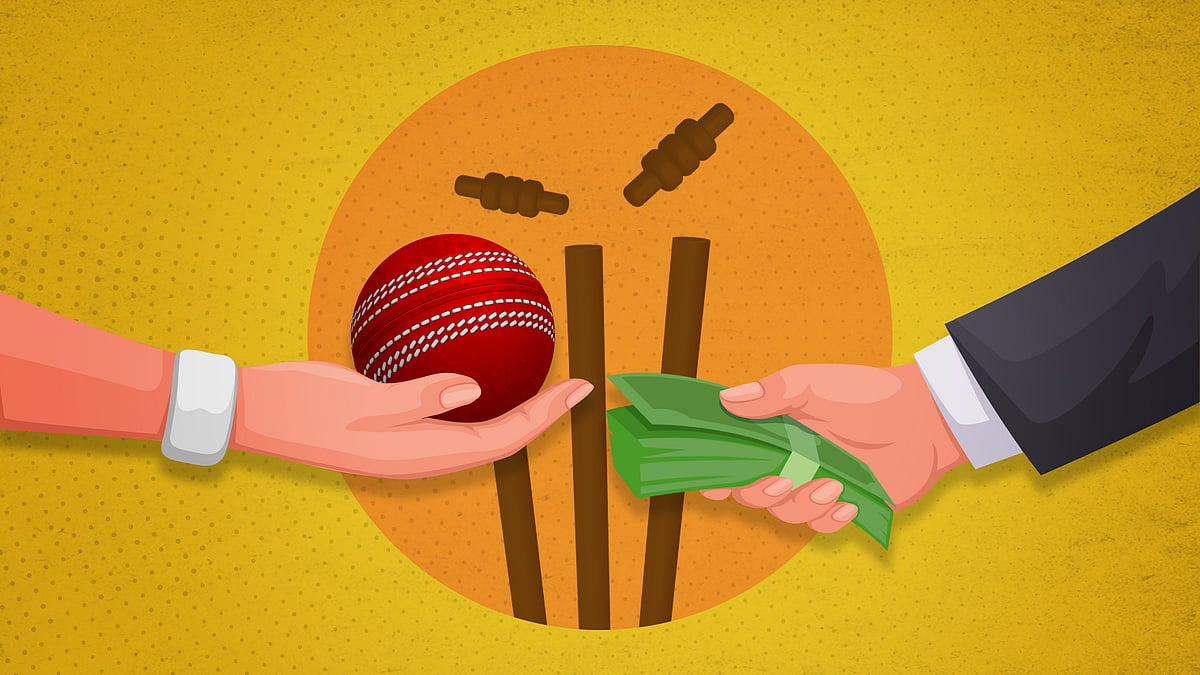Supreme Court puts Jay Shah and Sourav Ganguly firmly in control of Indian cricket
The court has eased term limits for cricket administrators, effectively giving them a free run of 12 years between state associations and the BCCI.
“The match is never finished until the last ball is delivered” is a familiar saying in the world of cricket. The Supreme Court case involving the Board of Control for Cricket in India shows that it applies off the field as well.
In July 2016, the top court gave its initial ruling on the case, which stemmed from the Indian Premier League spot fixing scandal, signalling the end of unethical practices in Indian cricket and paving the way for making its governing body transparent by upholding the Justice Lodha Committee’s recommendations for reform.
On September 14, however, the Supreme Court allowed the BCCI to scrap a key reform made by the Lodha committee. Justices DY Chandrachud and Hima Kohli ruled that BCCI officials did not need to have a “cooling off” period of three years after serving two consecutive three-year terms in either a state association or the BCCI or between them combined. They need only take a break after serving two three-year terms in either a state association or the BCCI. But if an official who has served two consecutive terms in a state association wants to contest in a BCCI election, they need not cool off.
In effect, this means that cricket officials can now serve for 12 years without interruption between state cricket associations and the BCCI instead of six.
“The modification would not impair the original goal” of the reform, the court said while allowing the BCCI to amend the 2018 constitution to relax the term limits.
Most immediately, the ruling allows BCCI president Sourav Ganguly and secretary Jay Shah, son of home minister Amit Shah, to serve for another three years.
They were ineligible to go for another term until the ruling came, having each served consecutive terms between their respective state association and the BCCI.
Ganguly and Shah were elected in October 2019 to run the world’s richest cricket body with Jayesh George as the joint secretary and Arun Dhumal, brother of union sports minister Anurag Thakur, as the treasurer. Because Ganguly, Shah and George had each served one full term and over two years of another in their state associations, they were required to quit their posts within a few months so as not to exceed the constitutional ceiling of six consecutive years in cricket administration.
But once they took power, the BCCI went to the Supreme Court challenging some of the contentious clauses in the constitution, including the cooling off period. The court granted the petition.
Lodha, a former chief justice of India, has described the cooling off clause in BCCI’s constitution as the “most crucial pillar of his report as far as the governance and structure of the BCCI is concerned”. It functioned as a “snow mountain”, he said, that cricket administrators found hard to navigate so they would “wait for the weather to change”. Now, after the apex court’s ruling, they need not wait.
Lost cause?
When the spot fixing case went to the top Court, the people who had been running the association for years were put to pasture. In their place came people who had little experience of cricket administration at the top level. It was not a surprise then that IPL franchise owners started amassing ever more authority in the Shah-Ganguly regime. Many of them are investing the sums they make from IPL in foreign T20 leagues – Caribbean, UAE and South Africa – raising conflicts of interest concerns. Such concerns were the reason why the BCCI under Sharad Pawar and N Srinivasan had prevented IPL franchise owners from buying teams outside the country.
The court proceedings around this case have also raised some questions. Why was Tushar Mehta, India’s solicitor general, in the court on behalf of a private association, which is what the BCCI is? Why did the court select as amicus curiae Maninder Singh, who had opposed the Lodha reforms while defending the cricket associations of Railways, Universities and Services when he was additional solicitor general?
In fact, the proceedings have been controversial since almost the beginning. Prior to asking Lodha to help reform the BCCI, the Supreme had appointed a panel under Justice Mukul Mudgal to look into the allegations of spot fixing.
Mudgal found many instances of alleged sporting fraud which prompted the Supreme Court to ask police officer BB Misra to join the investigation. Misra, who has since retired, reportedly found evidence of misconduct against a member of India’s 2011 World Cup team and was close to cracking the spot fixing case when he was told to stop the investigation because Mudgal feared he was going beyond the mandate given by the court.
In 2014, Mudgal gave a sealed envelope containing the names of 13 cricket players and administrators suspected of wrongdoing and recommended that they be investigated further. The court disclosed four of the names – Rajasthan Royals co-owner Raj Kundra, Chennai Super Kings manager Gurunath Meiyappan, former BCCI president N Srinivsan, and IPL chief operating officer N Sundar Raman – but the rest are still under wraps.
While Srinivasan and Sundar Raman were later cleared of any wrongdoing by the Lodha committee, Kundra and Meiyappan were banned from cricket administration for life.
Nearly 5,000 pages of Misra’s investigation report are also stashed away in the Supreme Court. For unstated reasons.

Support Independent Media
The media must be free and fair, uninfluenced by corporate or state interests. That's why you, the public, need to pay to keep news free.
Contribute Proposal to acquire snooping tools turns sticky wicket within BCCI
Proposal to acquire snooping tools turns sticky wicket within BCCI Why Indian cricket is under corruption cloud: Lack of law, secret shops, tournament mushroom
Why Indian cricket is under corruption cloud: Lack of law, secret shops, tournament mushroom
Power NL-TNM Election Fund
General elections are around the corner, and Newslaundry and The News Minute have ambitious plans together to focus on the issues that really matter to the voter. From political funding to battleground states, media coverage to 10 years of Modi, choose a project you would like to support and power our journalism.
Ground reportage is central to public interest journalism. Only readers like you can make it possible. Will you?
